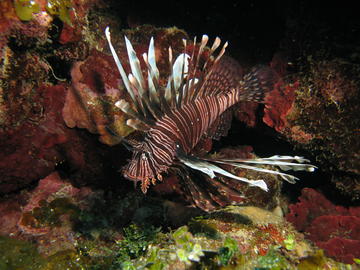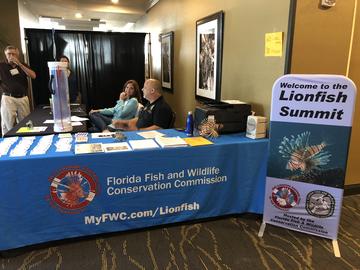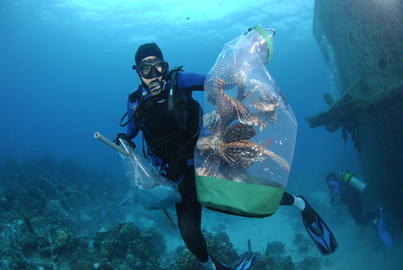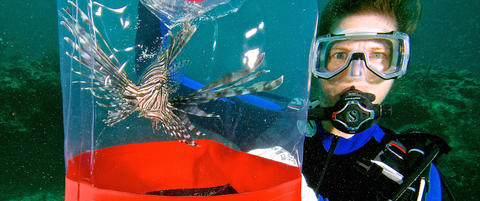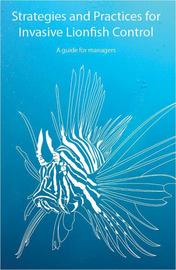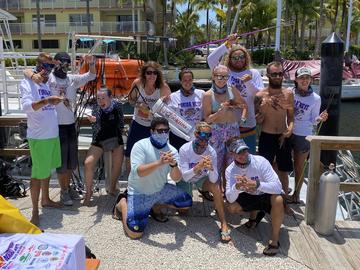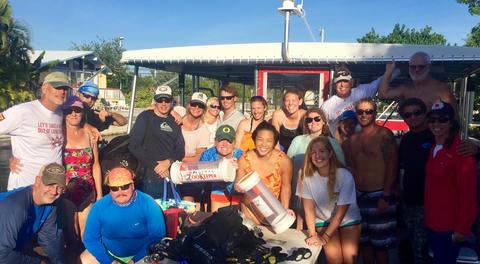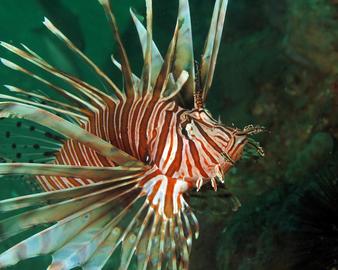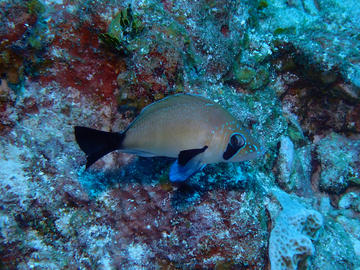Exotic and invasive species are those that are not native to an area, but have been brought in through human activities. Non-native marine fishes can pose a major threat to fisheries, habitats, native species, and overall ecosystem function. The REEF Invasive Species Program uses conservation science, research, education, and community outreach to raise awareness about these threats. Here are four ways you can get involved:
On October 2-4, REEF’s Invasive Species Program Coordinator, Dr. Alli Candelmo, and Environmental Leadership Intern, Sophie Costa, joined regional researchers, invasive species managers, divers, and ocean conservationists at the Florida Fish and Wildlife Commission 2018 Lionfish Summit. The summit addressed three main themes: Policy & Regulation, Control Efforts/Research & Monitoring and Education & Outreach. Alli presented as an invited speaker on the trends of ten years of REEF lionfish derbies and lionfish movement patterns and the application to improving removal efforts.
We are now accepting registrations for our Invasive Lionfish Trip aboard the Belize Aggressor III on June 8-15, 2019. This trip will be led by Invasive Species Program Coordinator, Alli Candelmo, Ph.D., and Education Program Manager, Ellie Splain. This Invasive Lionfish Trip is part of REEF’s ongoing effort to monitor the establishment and consequences of invasive lionfish on native fish populations and reef ecosystems.
A new scientific paper with results from REEF's Invasive Species Program research was recently published in the journal Conservation Science and Practice. The findings shed light on the factors affecting invasive lionfish intervention success and efficiency and how to best incorporate these findings into local management for invasive species. As part of a multi-year study with funding from NOAA Coral Reef Conservation Program and others, REEF and partners coordinated regional efforts by divers to cull invasive lionfish on 33 U.S.
REEF is excited to announce the release of Invasive Lionfish: A Guide to Control and Management. Available as an e-book to view and/or download (formatted for desktop and mobile devices), this extensive manual was created to aid coastal managers and field workers in effectively managing the invasive lionfish problem.
The REEF Conservation Challenge is a way to earn stickers while participating in REEF programs. This month, in honor of the 13th annual Florida Keys Lionfish Derby & Festival, we're highlighting the Invasive Species Challenge. There are several ways to complete this challenge and earn the accompanying sticker, and one way is to participate in a REEF Lionfish Derby. If you're in the Florida Keys or South Florida, check out the Florida Keys Lionfish Derby & Festival this weekend in Islamorada.
Although our 2018 Summer Lionfish Derby Series has come to a close, REEF is continuing invasive lionfish education and removal efforts through Collecting and Handling Workshops throughout southern Florida. The goal of the workshops is to educate the public about the invasive lionfish, as well as practice safe removal methods and provide participants with permits issued by the Florida Keys National Marine Sanctuary for removal of lionfish in the Sanctuary Preservation Areas using hand nets only.
First sighted in Lebanon in 2012, invasive lionfish have since become well-established in the Mediterranean Sea. In an effort to provide policy recommendations for the lionfish invasion within the Mediterranean Sea, REEF joined in a global collaborative effort with researchers from Europe, Asia, Africa, North America, and the Caribbean to share successes and failures from two decades of lionfish management in the Western Atlantic.
REEF Fishinars are fun, live, interactive webinars, open to anyone who wants to learn about ocean life. We hope you can join one of our upcoming sessions!
Unique Fish of the Cayman Islands: Join REEF’s Director of Science, Christy Semmens, on Wednesday, Sept. 4 at 8pm Eastern to learn more about some of the unique and interesting fish that you can find while diving in the Cayman Islands.
Alli attended Rutgers University where she obtained a Ph. D. in Ecology and Evolution.

